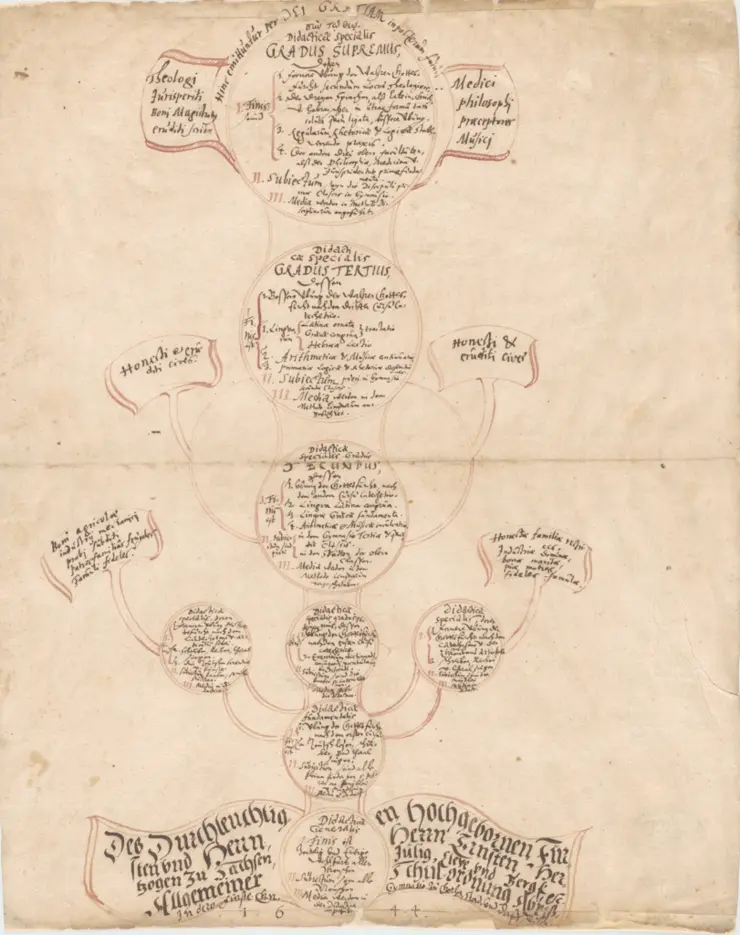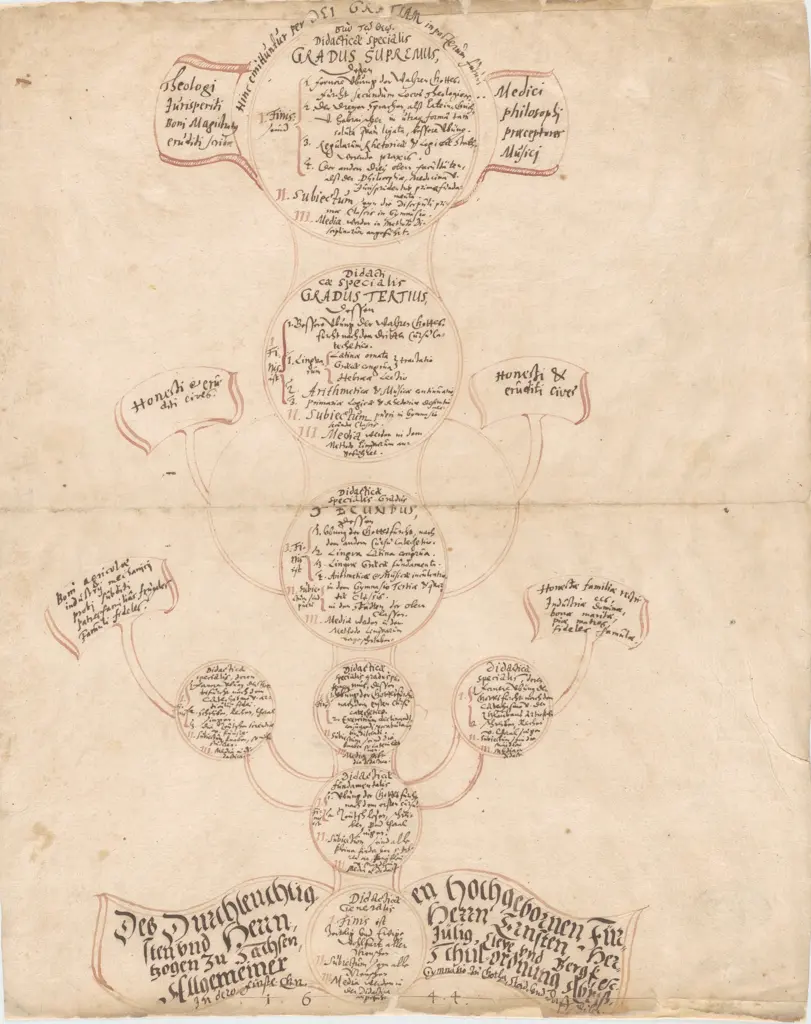The Gotha Research Library, the State Archives of Thuringia – Gotha State Archive, the Gotha Municipal Archives and the Friedenstein Foundation Gotha have at their disposal one of the most important and complete collections on the history of schools and education in the 17th and 18th centuries in the German-speaking world. This exceptional collection, including extensive records from the territorial school supervisory authorities, has its roots in the reform policy of Duke Ernest I (1601–1675). Lists of certificates, registers of souls, visitation records and other sources, which are now preserved in the State Archives of Thuringia – Gotha State Archive, provide precise insights into everyday life and social conditions of school and church education in the city and the countryside.
These holdings of the Gotha Research Library and the Friedenstein Foundation Gotha originated during the Thirty Years' War under Duke Ernest I who was interested in the history of education. A quarter of the early modern holdings of the Research Library is related directly or indirectly to the history of education. Of particular note are the bequests of such important educationalists as Wolfgang Ratke (1571–1635) and Andreas Reyher (1601–1673). In the collections of the Friedenstein Foundation Gotha, the objects of the princely art and naturalia chamber used for school purposes reflect the extraordinarily early promotion of natural science and other “realia”. Particularly important are the handwritten documents of the scholar Veit Ludwig von Seckendorff (1612–1692), who was in the service of the Duke between 1645 and 1664 and who played a decisive role in providing ideas and organising the Gotha reforms of state, society and education. The Gotha Research Library has been making these documents accessible since 2020 as part of a project funded by the German Research Foundation. Handwritten documents on the Gotha Gymnasium, where Seckendorff and August Hermann Francke (1663–1727) received their schooling, are also unique. In addition to curricula, teaching concepts, student registers and correspondence, these include the Gymnasium Library, which was integrated into the Research Library after the Second World War and which contains around 50,000 volumes.
To promote research into the collection on the history of education, the Gotha Research Library, together with the Gotha Research Centre of the University of Erfurt, launched the project “Educational Landscape and Knowledge Culture: Collection-related Research on the Early Modern History of Education in the Duchy of Saxe-Gotha-Altenburg” from 2014 to 2017. The project, funded by the Thuringian Ministry of Economy, Science and Digital Society, investigated the genesis, structure and development of Gotha's collections of educational history in two exemplary pilot studies pursuing different questions. The Gotha Research Library has also compiled the “Digital Repertorium: Bildungsgeschichtliche Sammlungen Gotha, 1640–1732” (Digital Repertory of Gotha's Educational History Collections, 1640–1732), which lists sources on educational history from the four Gotha institutions.
More information about the collection.
Digital Repertory of Gotha's Educational History Collections (1640–1732)




